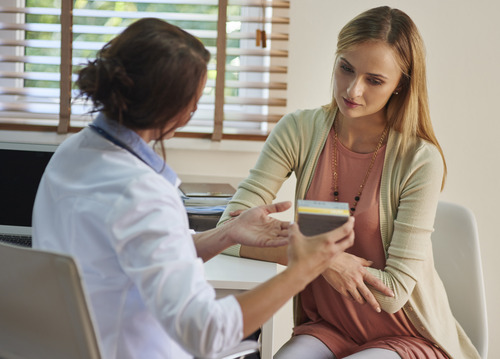Things to Know

Highly experienced and qualified lady gynecologist and obstetrician, with over 30 years of experience in the field. Have worked for 21 years with the Ministry of Health in The Sultanate of Oman as a Senior Consultant, in Tertiary Care Teaching Hospitals in Muscat.
Plan Table

Planning pregnancy
- Take Folic acid 400 micrograms per day, and continue it even after you become pregnant until 12 weeks. Helps the early development of the fetus, especially the brain, spinal cord, and eyes.
- Eat healthily- avoid fast foods/ junk foods, and aerated drinks.
- Stop smoking, and this applies to both partners.
- Cut out Alcohol.
- Keep a healthy weight.
- Consult your doctor before embarking on a pregnancy if you are on medications for Epilepsy, Thyroid Disorder, Diabetes Mellites, Psychiatric illness, or any other illness.
- Relaxation and exercise

Pregnancy Signs
- Missed period
- Passing urine frequently
- Breast heaviness and tenderness
- Nausea and Vomiting- Morning sickness

Diagnosis
- Home pregnancy test
- Blood test – beta HCG- the pregnancy hormone
- Ultrasound
- Your due date is calculated by adding 280 days to the first day of your last period (40 weeks). But an ultrasound done at around 12 weeks is more acute in predicting the due date.

Antenatal Care
- Your first visit to the doctor is usually around 6 weeks of pregnancy.
- Your doctor will examine you and do an ultrasound to make sure the pregnancy is sited in the correct place in the womb.
- She will advise blood and urine tests and prescribe vitamins.
- She will also explain to you the frequency of your antenatal visits and the frequency of ultrasound scans.
- She will advise regarding diet and exercise during pregnancy.

Pregnancy Care
10 ways to keep healthy during pregnancy
- Eat Healthy nutritious food – avoid fast food and junk food
- Drink plenty of fluids – avoid fizzy drinks and sweet drinks
- Take your daily prenatal vitamins
- Attend you check-up schedules diligently
- Don’t drink Alcohol
- Don’t smoke
- Walk at least 30 minutes everyday
- Reduce stress
- Get enough sleep
- Take the vaccinations as recommended by your doctor

Ultrasound
- The first Ultrasound is usually done between 6-8 weeks and the purpose is Confirmation of pregnancy and dating – know your due date
- The 13 weeks scan or NT scan- an early anatomy scan for anomalies, and screening for chromosomal anomalies like Down’s Syndrome, Edward’s syndrome and Patau’s syndrome
- The Morphology scan done at 20 weeks
- A growth scan done done around 32-34 weeks to make sure the baby is growing normally.

Trimester Chart

A pregnancy is divided into trimesters: the first trimester is from week 1 to the end of week 12. the second trimester is from week 13 to the end of week 26. the third trimester is from week 27 to the end of the pregnancy.
We truly enjoyed being taken care of by you. Your wealth of experience in the field was on display and we enjoyed the world class care you gave to us. You answered all our questions even on your off days and your love and comfort was second to none as your patient. My wife and I felt reassured under your care and at no one point did we have to worry or be anxious about anything. Thank you Dr.Ghazala!
Sarah and James.Dr Gazala is a very well skilled and knowledgeable doctor. She has impressed us in all the ways during the pregnancy period with good counseling and during labor. It was a wonderful experience being with her. She is the best.
Bibi from MalaysiaShe is not just communicating to the patient, she is connecting herself to her patient. With this, patient are being more comfortable which is important especially during pregnancy. My operation went well and feeling a lot better now. Thank you so much
Arradaza family
Our Location

Mediclinic Welcare Hospital
Al Garhoud, PO Box 31500,
Dubai, UAE
Armada Medical Centre – cluster P,
Jumeira Lake Towers































